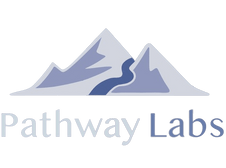Beauty and wellness are integral parts of our society, and the cosmetology industry plays a vital role in shaping trends and enhancing personal confidence. Aspiring cosmetology professionals receive their education and training from a wide range of institutions, and the quality of this education is of paramount importance. That's where accrediting bodies like NACCAS (National Accrediting Commission of Career Arts and Sciences) step in to ensure that cosmetology schools maintain high standards of education and training. In this post, we'll delve into the world of NACCAS accreditation requirements and their significance.
What is NACCAS?
NACCAS is an accrediting agency that focuses on the evaluation and accreditation of institutions offering career-focused education in cosmetology, barbering, esthetics, nail technology, and other related fields. Their mission is to uphold and promote the high standards of education and training necessary for students to succeed in these dynamic industries.
Why Accreditation Matters
Accreditation serves as a quality assurance mechanism that benefits both students and institutions. For students, it ensures that they receive an education that meets industry standards and equips them with the necessary skills to excel in their careers. We often hear for schools the accreditation process can be a headache if they don’t have the right systems in place.
How Software Can Help with Accreditation
During the accreditation process, you will be audited across all areas of your school, and if you aren’t using a centralized database to store your student data, you will spend countless hours getting all of the documentation together. A tool like MyPath can help you save time and ensure you have all of your bases covered during the accreditation process.
NACCAS Accreditation Requirements
Obtaining and maintaining NACCAS accreditation requires institutions to meet a set of comprehensive requirements. These requirements are designed to assess various aspects of an institution's operations, including educational quality, student outcomes, and administrative practices. Let's explore some key areas that NACCAS evaluates:
Curriculum and Instruction
Institutions must demonstrate that their curriculum is comprehensive, up-to-date, and aligned with industry trends. They should provide evidence of effective teaching methods, qualified faculty, and appropriate resources for hands-on training.
Faculty Qualifications
NACCAS assesses the qualifications of the faculty members who deliver the education and training. Faculty should have relevant industry experience and academic credentials to effectively teach and mentor students.
Facilities and Equipment
Cosmetology education requires access to modern and well-equipped facilities. NACCAS evaluates whether institutions have adequate facilities, equipment, and tools to provide hands-on training that mirrors real-world salon environments.
Student Support Services
Institutions must provide comprehensive student support services, including career counseling, academic advising, and resources for personal and professional development.
Admission Practices
NACCAS reviews an institution's admission policies to ensure they are fair, transparent, and align with the institution's mission.
Graduation and Placement Rates
One of the essential goals of cosmetology education is to prepare students for successful careers. NACCAS evaluates an institution's track record in terms of student graduation rates and job placement rates in the industry.
Financial Stability
Institutions seeking accreditation must demonstrate financial stability to ensure that they can provide a consistent and quality education over time. One thing they may look into is your compliance with the 90/10 rule for example.
Student Learning Outcomes
NACCAS focuses on the learning outcomes of students, assessing whether they have gained the necessary skills and knowledge to excel in the cosmetology field.
The Accreditation Process
The journey towards NACCAS accreditation is a rigorous one. Institutions seeking accreditation undergo a thorough self-assessment and submit a detailed self-study report. Following the submission of the self-study report, NACCAS conducts an on-site evaluation to verify the accuracy of the information provided and assess the institution's compliance with accreditation standards. This evaluation involves interviews with students, faculty, staff, and administrators.
Benefits of NACCAS Accreditation
Accreditation by NACCAS brings a multitude of benefits to both institutions and students:
Credibility
Accredited institutions are recognized for their commitment to quality education and are viewed more favorably by students, employers, and the industry as a whole.
Quality Improvement
The accreditation process encourages institutions to continuously assess and improve their programs, leading to higher educational standards and better student outcomes.
Access to Financial Aid
Accredited institutions enable students to access federal financial aid, such as Title IV, making education more affordable and accessible.
Employability
Graduates of accredited programs are more attractive to potential employers due to the assurance of a high-quality education.
Staying Ahead in the Accreditation Journey
The pursuit of NACCAS accreditation is not a one-time endeavor; it's an ongoing commitment to excellence. Institutions that achieve accreditation must continue to demonstrate their dedication to quality education through regular self-assessments and periodic re-evaluations. This approach ensures that institutions adapt to changing industry standards and continue to provide students with relevant and up-to-date education.
As an accredited institution, the journey towards improvement doesn't end with accreditation itself. In fact, it's just the beginning. Institutions can leverage the insights gained from the accreditation process to refine their programs, enhance faculty training, and improve student support services. This proactive approach contributes to a dynamic learning environment that responds effectively to the evolving needs of students and the industry.
NACCAS and Industry Evolution
The cosmetology and wellness industries are not static; they evolve with new trends, technologies, and techniques. NACCAS recognizes this and encourages institutions to stay attuned to these changes. Institutions that align their programs with emerging trends in cosmetology can provide students with a competitive edge in the job market.
Furthermore, NACCAS accreditation fosters collaboration between institutions and the industry. Accredited schools often establish partnerships with local salons, spas, and beauty brands to provide students with hands-on experience and networking opportunities. This connection to the industry ensures that students receive a well-rounded education that prepares them for the real-world challenges they will encounter in their careers.
Conclusion
NACCAS accreditation is a stamp of approval that assures students, employers, and the industry that an institution provides high-quality education in the field of cosmetology. Institutions that embrace NACCAS accreditation commit to a journey of continuous improvement, staying current with industry trends and providing students with a comprehensive education that leads to successful careers.
For those considering a career in cosmetology, it's essential to choose an accredited institution to ensure you receive the best possible education. Aspiring cosmetology professionals should research and compare accredited programs to find the one that aligns with their career goals and aspirations.
If you’re a school that is interested in pursuing accreditation, check out MyPath to help you accomplish all of your NACCAS accreditation reporting requirements.

